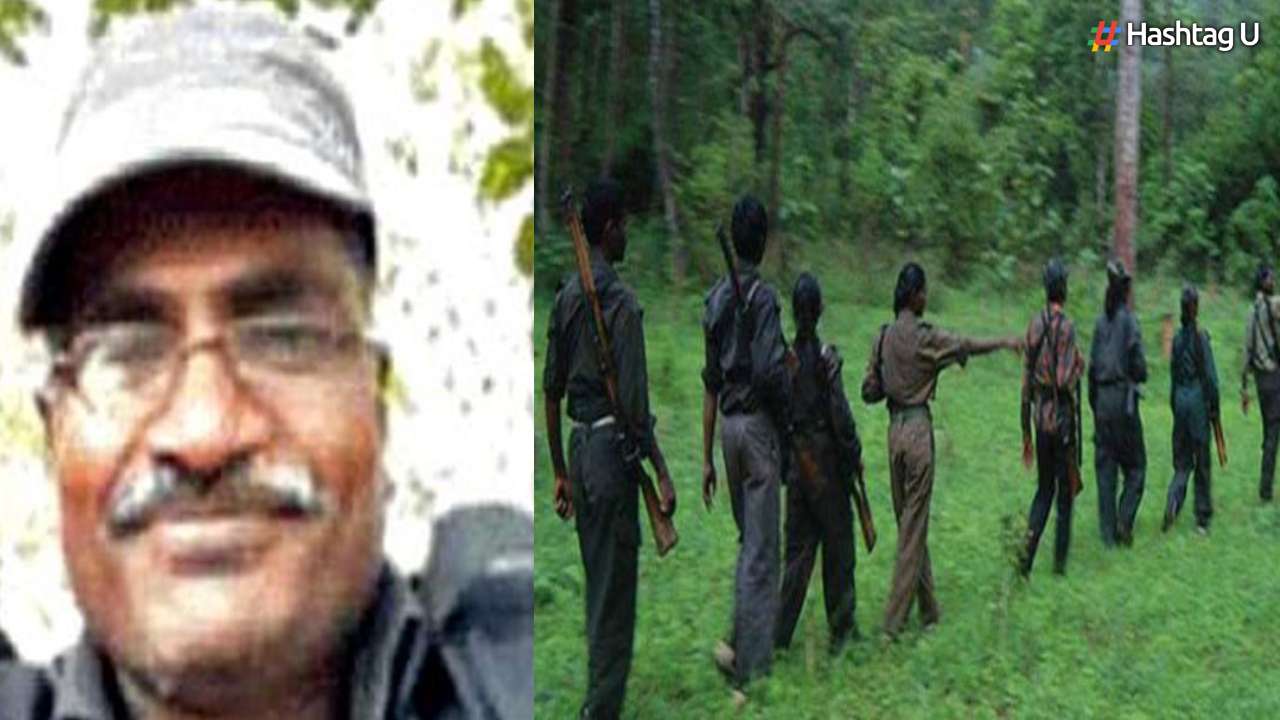Chalapathi: The intellectual leader and strategist of the Maoist movement, whose death will cause long-term damage
Dinesh Akula | Published On: Jan, 21, 2025 | 12:38 PM

Hyderabad: Creative and powerful leadership has always been crucial in the Maoist ideology, and many prominent leaders have contributed to spreading this ideology. One such leader was Chalapathi (Jayram), whose leadership and ideological strength proved to be a milestone in the Maoist movement. He was an effective strategist and played a key role in promoting the ideology and inspiring the youth. His contributions to the Maoist cause were immensely significant, especially when the movement faced internal conflicts and ideological voids.
Chalapathi was born in Chittoor district, Andhra Pradesh, and joined the Maoist movement about 25-27 years ago. He was a resolute soldier, a brilliant strategist, and an intellectual thinker. He was a voracious reader, and his thoughts gave a new dimension to Maoist ideology. He was a central figure in the movement, reporting directly to Nambala Keshav Rao alias Basavraj, who heads the Central Military Commission, the Maoist organization’s most powerful military arm.
Chalapathi was respected not just for his leadership but also for his deep understanding of military strategy and the movement’s ideological framework. He was considered an integral part of the Maoist movement’s inner circle, offering crucial insights and directions. His main task was to connect the new generation with Maoist thought, as the organisation had noticed a decline in intellectual talent.
Chalapathi took this challenge head-on when the Maoist movement struggled to strengthen its hold, especially in areas like the Andhra-Odisha Border (AOB). He emerged as a key leader in the AOB region, bringing not just strategic military expertise but also a profound ideological influence. He was crucial in guiding Maoist activities in areas like Srikakulam and Koraput.
Chalapathi’s intellectual prowess and military strategies were fundamental in shaping the Maoist movement’s approach to recruitment and operational success. His leadership was indispensable when the organisation faced a leadership crisis in the AOB region. Despite personal controversies, particularly after marrying Aruna, a fellow Maoist, Chalapathi’s importance within the movement remained undisputed. Although not much is known about her, Aruna was reportedly educated and hailed from Pendurthi in Visakhapatnam.
Chalapathi’s intellectual capacity and military expertise made him indispensable to the Maoist organization. When the AOB region was grappling with a lack of leadership, Chalapathi provided the much-needed direction. His role as a leader and thinker remained pivotal even when he faced internal conflicts within the organization. His ability to inspire the youth and direct the movement toward its goals cannot be understated.
However, the death of Chalapathi now marks a significant crisis for the Maoist movement. The loss of a thinker and strategist like him creates a massive void in the leadership, and the organization will face long-term consequences. Recently, Chalapathi died in an encounter with security forces in Chhattisgarh’s Gariaband district, marking a profound loss for the Maoist leadership.
The operation, which took place late Monday night and early Tuesday morning, was a joint effort by security forces from Chhattisgarh and Odisha, including the District Reserve Guard (DRG), Central Reserve Police Force (CRPF), CoBRA, and the Special Operation Group (SOG). Intelligence about Maoist presence in the Kulrighat reserve forest, just five kilometres from Odisha’s Nuapada district, led to the operation. During the encounter, Chalapathi and 13 other Maoists were killed, with a large cache of arms, ammunition, and IEDs recovered from the site.
Chalapathi, who had a bounty of ₹1 crore on his head, was a crucial member of the Maoist Central Committee. His death and the loss of other key leaders will have long-lasting repercussions on the organization. The Maoists are already struggling to fill the AOB region’s leadership vacuum. Chalapathi’s death will make it even harder to inspire new recruits or provide the ideological direction the movement needs.
Chalapathi’s death underscores the deep connection between leadership and ideology in the Maoist movement. His ideas and strategies provided the foundation for the movement’s growth, but now, with his passing, the organization will struggle to maintain its ideological integrity and operational strength. His loss is not just a personal one; it’s a significant blow to the Maoist cause, one that will reverberate for years to come.
Chalapathi’s contributions to the Maoist movement can never be forgotten. His leadership and intellectual vision shaped the movement and gave it a new purpose. However, his death has left the organization grappling with a permanent loss that will undoubtedly affect its future for a long time.







